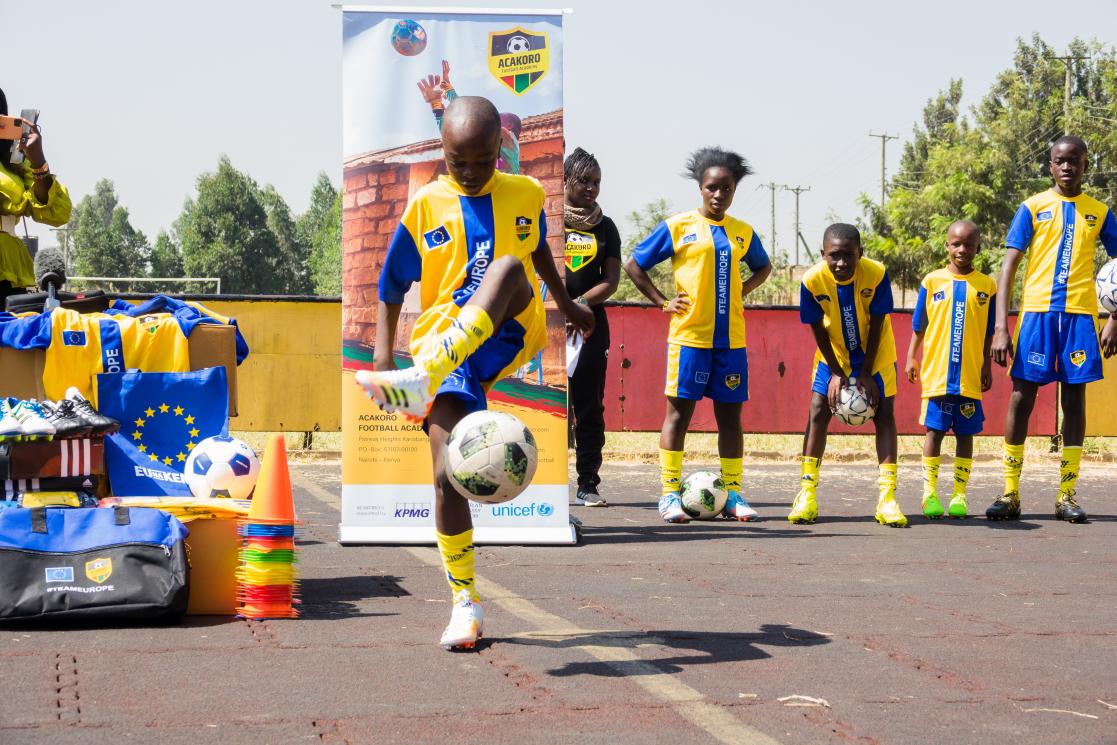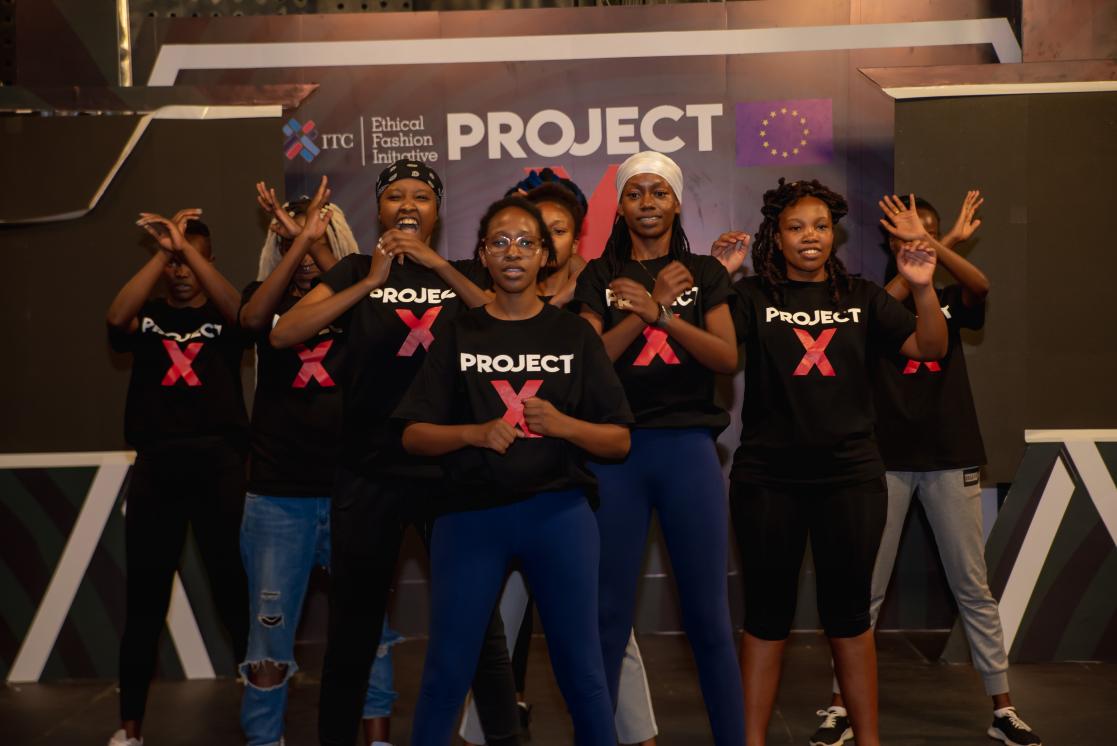RELATIONS WITH THE EU
The European Union and Kenya
The European Union is the biggest market in the world for Kenya's exports. It is also a major source of funding - supporting the transition towards a green economy, regional security, investing in Kenya's economic sectors of Agriculture, Resilience, Infrastructure Development, Public Financial Management Reforms and support to alleviate humanitarian crises that affect Kenya.
Political Relations
Strategic Political Relations
Our Strategic Dialogue underlines the solid bilateral and multilateral partnership between the European Union and Kenya and the interest to mutually cooperate. Kenya is a strong democratic partner in the East African region and in the Horn of Africa and has the potential for enhancing regional stability and for a constructive role in peace and security. Moreover, Kenya is a key player internationally at the United Nations, the African Union and other fora. Kenya and the European Union have sustained a consistent and long-term partnership over many years, and share multilateral and global aims such as combating climate change and fostering peace and security.
The EU has deployed Election Observation Missions upon invitation from the Kenyan Government during Kenya’s General Elections in 2002, 2007, 2013 and 2017.
Sustainable development and green economy
Promoting the European green agenda
In line with the ambition of the external dimension of the European Green Deal, the EU Delegation to Kenya promotes the transition to a climate-neutral, nature-positive, resource-efficient and more circular global economy in all its programmes.
The EU and Kenya are highly aligned on an ambitious climate, biodiversity and environmental global agenda. Kenya has prioritised transition to a green economy, combining the needs to generate growth and create employment, with the sustainable conservation of the environment and natural resources, resilience, and a reduced negative climate impact. The approach aims for a paradigm shift and an economic model that combines sustainable growth with environmental conservation and climate resilience. This represents a major transformational effort on the side of the Kenyan Government involving multiple line Ministries as a whole of governance objective.
As a host of the UN Environmental Programme, Kenya promotes impactful results of UNEA-5, including marine litter and plastic pollution.
Peace, Security and Defence Policy
Fighting common threats together
The European Union supports the efforts of the Government and people of Kenya to improve security throughout the country. Kenyans and Europeans have experienced terrorist atrocities, and the EU recognises that respect for Constitutional and fundamental human rights, as well as a sense of shared social and economic opportunity, is essential to prevent terrorism and violent extremism. The EU supports governments and communities across the Horn of Africa to:
- Counter violent extremism.
- Tackle money laundering and terrorist financing.
- Improve investigatory and judicial skills to help prosecute terrorist offences.
Under the Common Security and Defence Policy, the EU also operates a number of missions in the region to:
- Improve regional maritime security capacity including counter-piracy and maritime governance.
- Prevent piracy and armed robbery off Somalia's coast and protect World Food Programme and African Union Mission in Somalia (AMISOM) ships.
- Strengthen the Somali Government’s security institutions with a deployed military training mission.
- Reduce Chemical, Biological, Radiological and Nuclear risks (CBRN) as well as counter-terrorism and organised crime.
The European Union contributes diplomatically and financially to AMISOM and is a leading supporter of Somalia’s peace process.
Economic Relations, Trade and Investments
European Contribution to Industrialisation in Kenya
The European Union is a significant trading partner to Kenya, representing Kenya's biggest export market with 21.1%, of Kenya's total exports to the world. Exports to the EU are mainly agricultural products: tea, coffee, cut flowers, peas and beans. Over 70% of Kenya’s total flower production is exported to the European Union, creating 500,000 direct and indirect jobs for Kenyans.
Kenya is the commercial hub for the EAC region thanks to its favourable location, skilled labour force and vibrant business community. European companies lead the way in investing in Kenya, generating jobs and tax revenue. The European Investment Bank provides long-term development loans to support the building of energy and transport infrastructure.
The upcoming implementation of the Economic Partnership Agreement underscores the significance of the European Union trade relations with Kenya.
The European Union is the biggest trading bloc in the world, accounting for around 15% of global exports and imports.
The Trade Helpdesk (previously known as the Export helpdesk) is an online service to facilitate market access in particular for developing countries to the European Union. This is a free and user-friendly online service for exporters, importers, trade associations and governments.
Humanitarian Aid
Emergency preparedness and response
Kenya is prone to natural disasters and there is a need to strengthen the country’s emergency preparedness and response capacity. Some 2 million Kenyans are food insecure due to increasingly unpredictable weather and a regional locust infestation.
Since 2012, the EU Humanitarian Aid to Kenya has amounted to €200 million.
Kenya is also host to over 500,000 refugees from neighbouring countries. The EU supports refugees in Kenya, but also supports the Kenyan host communities in Turkana and Garissa counties. We work in coordination with national and regional authorities and cover basic life-saving services (food assistance, health care, nutrition, water, sanitation and hygiene), as well as protection and access to education and training courses.
In addition to humanitarian aid in response to floods and droughts, the EU has been a long-time supporter of the National Drought Management Authority (NDMA) since its creation in 2012, with preparedness and drought response programmes in all the arid and semi-arid (ASAL) counties. These interventions have had a positive impact on the food security situation of the most vulnerable populations in these counties and have enabled the Kenyan government to advance towards its Ending Drought Emergencies strategy.
For more details, see the Kenya pages of European Civil Protection and Humanitarian Aid Operations and of the EU Emergency Trust Fund for Africa.
EU Response to Covid-19 in Kenya
Solidarity with Kenyans during pandemic times
As Team Europe - the EU Delegation to Kenya, the Embassies of the EU Member States and the European Investment Bank – have swiftly responded to Covid 19 emerging needs in Kenya.
In the first months of the Covid 19 pandemic, we reprogrammed and increased our funding to help Kenyans tackle the worst effects of the pandemic through:
- Direct cash support to the Kenyan households worst affected economically.
- Supporting the provision of sanitation and health care in priority locations across the country.
- Providing cash injections to Kenyan businesses so that they could survive the difficult but necessary lockdowns and unavoidable economic slowdowns and keep as many Kenyans in jobs as possible.
- Supporting measures to allow Safe trade across the East African Community to continue, including through support to Kenyan truck drivers.
Globally, the EU took steps to ensure that the health response, and in particular the vaccines response, was a global effort. The EU and the EU Member States are the biggest donors to the COVAX Facility, which enables the free distribution of vaccines to 92 middle- and low-income countries. Kenya so far has received more than 1 million doses through Covax.
Development Cooperation
EU’s Joint Cooperation Strategy with Kenya
Together, the European Union and its Member States are the biggest providers of development assistance to Kenya. In 2018, the European Union, EU member states represented in Kenya and the European Investment Bank launched the Joint Cooperation Strategy 2018-2022 under which €4.5 billion in combined development aid will support the priorities and objectives of the national government, focused on the Big Four agenda (manufacturing, food security, universal health coverage and affordable housing).
Based on Kenya’s development strategy, the following sectors of concentration have been identified as priorities for European Union funding:
- Accountability and Governance.
- Sustainable infrastructure.
- Employment creation.
- Resilience building.
In addition, the EU provides some funding to Kenya for other cross-cutting activities, such as support to strengthen the National Treasury's role as the National Authorising Officer of development funding for the country.
Nine EU Members States have developed active bilateral cooperation programmes in Kenya. They include Denmark, France, Finland, Germany, Italy, Ireland, Slovak Republic, Sweden and the Netherlands. Other EU partners present in Kenya are Austria, Belgium, the Czech Republic, Greece, Hungary, Poland, Portugal, Romania and Spain.









